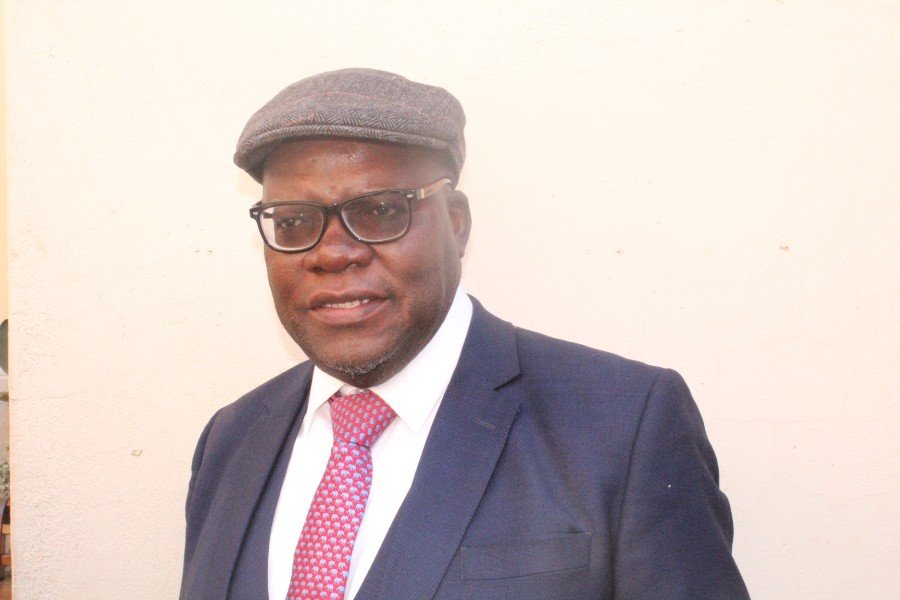Mandatory Rape Sentence: Biti cautions the Govt over the move
Harare East legislator Tendai Biti has warned the government over imposing mandatory sentences for rape cases, arguing that it will take away the powers of the judiciary.
Biti was giving his views in response to the Ministerial Statement that had been presented by the minister of Justice Ziyambi Ziyambi.
According to Minister Ziyambi, mandatory sentences are meant to deter offenders from repeating the crimes.
However, according to Biti, the judicial thinking across now is that mandatory sentences are unconstitutional because they breach the right to a fair trial codified in Section 69 (1) of the Constitution and the right to equal protection and benefit of the law codified in Section 56 (1) of the Constitution.
Below is the full text of Honourable Biti’s debate
HON. BITI: Hon. Speaker Ma’am. I thank the esteemed Minister of Justice, Legal and Parliamentary Affairs for his eloquent statement in response to the debate. I am shocked by the statistic that 21 women are raped every day, which would mean that every 75 minutes, a woman is being raped. There is something fundamentally wrong with the moral fabric of our society because that statistic is shocking. I urge therefore that there must be a strong and bold approach taken by the courts to ensure that there is deterrence and to ensure that anyone tempted to commit a heinous crime on another individual is punished. Rape constitutes the greatest violation on a woman because of the penetrative nature of the crime.
I support strong sentences but I also must caution Madam Speaker Ma’am that we must trust the Judiciary. The Judiciary is tried and tested. The Judiciary has got mechanisms in which they can balance the society’s anger against this brutal invasion called rape and also the interest of justice, including the subjective circumstances of an accused person. Therefore, I urge the Minister to push for this judicial colloquium and ensure that at the Judicial Colloquium, there are world experts that will speak on the issue. There are regional experts, there are African experts and there are Zimbabwean experts that should guard that colloquium and come up with recommendations that will be put to the Ministry and Government.
I want to draw the Minister’s attention to a number of judgements and thinking across the continent. I am going to refer to African judgements. There is thinking across the continent that if the Constitution in Section 69 (1) guarantees the right to a trial, the right to a trial includes an enquiry on two things. The first enquiry is on culpability or guiltiness. So a court of law is equipped to determine whether a person is guilty or not. That enquiry includes a second stage, which is the penalty to be meted to an accused person. A proper trial includes an enquiry both on liability and conviction. The new thinking is that it is only the court which should be free to enquire in both circumstances; conviction and sentence, liability and penalty. Therefore, when a court finds itself with a mandatory sentence, you are denying the right to a fair trial because you have taken away from the court the obligation to enquire into the second leg of the enquiry which is the penalty. So, the judicial thinking across now is that mandatory sentences are unconstitutional because they breach the right to a fair trial codified in Section 69 (1) of the Constitution and the right to equal protection and benefit of the law codified in Section 56 (1) of the Constitution.
There are two important judgements on the African Continent. One of them is a decision of the Ugandan Constitutional Court by their Chief Justice, Justice B.J Odoki in the matter of Alice Kigula and another v Attorney General. That case Hon. Speaker Ma’am involved the imposition of a mandatory penalty of death when there were no extenuating circumstances. That used to be the case in our law. In Zimbabwe, the death penalty before the current Constitution used to be imposed when there are no extenuating circumstances found. Extenuation is different from mitigation. Extenuation are those special circumstances that may question your guilty. The Ugandan Constitutional Court through Odette J, held that if a court cannot inquire on sentence beyond extenuating circumstances, you have tied this court and therefore it is unconstitutional. That same line of thinking was followed in the Malawi Constitutional Court, in a case called Kafandala (State versus Kafandala). The Malawian Supreme Court came to that conclusion again that you cannot tie the hands of the judiciary. The judiciary must have the power to inquire bottom liability and on sentence.
Madam Speaker Ma’am, this is consistent with the principle of separation of powers. Just like the legislature cannot question the Government when the Government decides to put a tollgate in front of my house on Enterprise Road, the Executive cannot also question the judiciary in the field of the judiciary. So, I urge the Hon. Minister to respect the separation of powers. Otherwise, I thank the esteemed Minister of Justice for a job well done. I thank you.
Mandatory Rape Sentence: Biti cautions the Govt over the move



